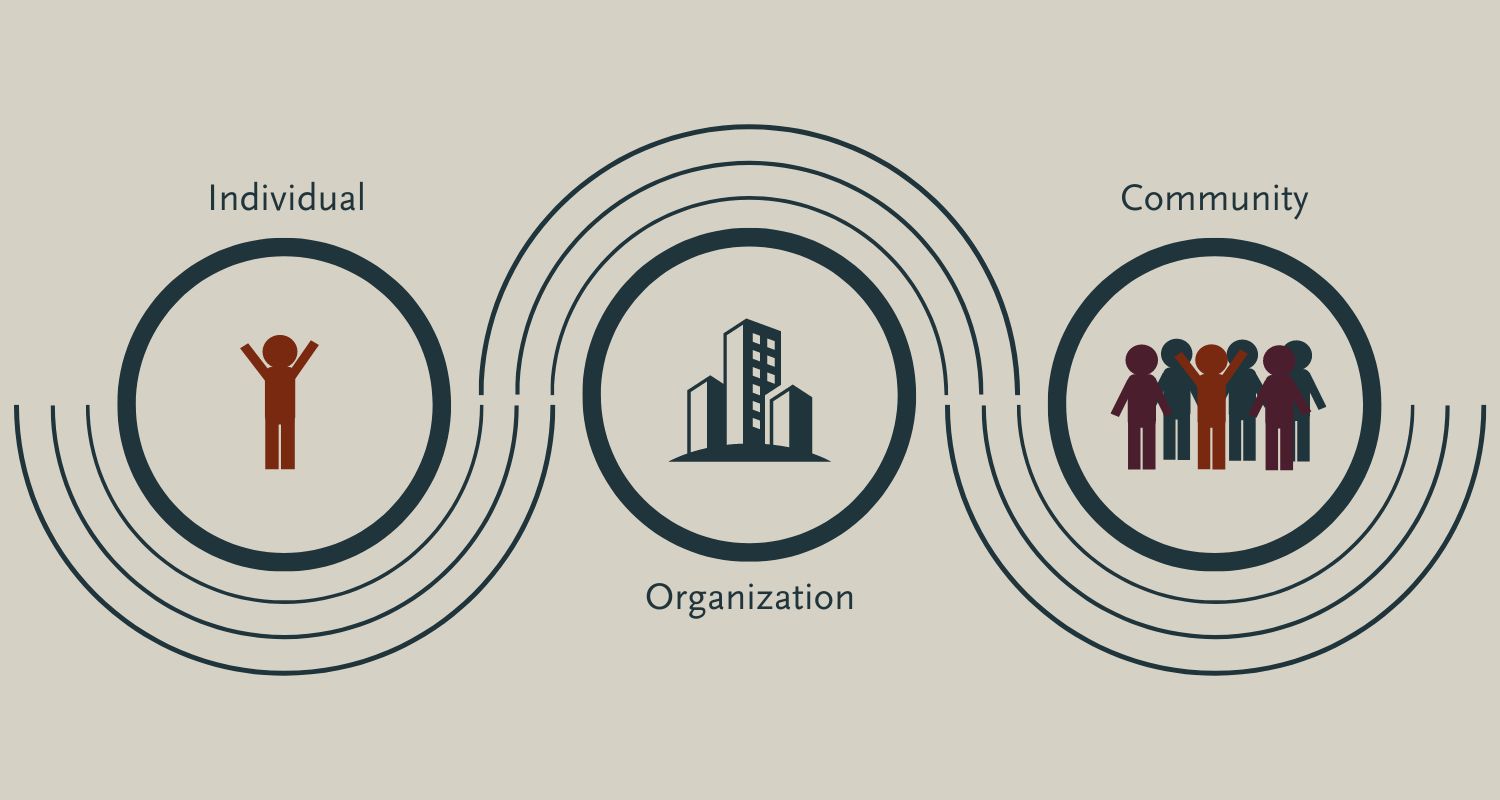Theory of Change
Our Pathway for Meaningful Impact
Hope is the thread that runs throughout the Center for Transforming Engagement. Yet in our desire to push back against the despair and cynicism of our age, we also recognize that societal problems can’t be solved in shallow soundbites or trite formulas. The following Theory of Change is the pathway we have crafted to achieve our mission.
A New Paradigm
Moving from social fragmentation to cohesion requires a new paradigm based on the transformative nature of relationships.
Change happens through the ways in which we engage one another, through the reciprocal sharing of needs, hopes, purpose, and care. The Center is specifically interested in the engagement between leaders and systems. A system impacts/informs the leader and the leader impacts/informs the system, in an ongoing conversation. This interplay and causation is central to our theory of change.
There are three distinct, yet overlapping areas where we focus our attention in order to advance societal change. Each relies on the next, and the health of one impacts the health of the other.
Our programs and initiatives are designed to develop, strengthen and grow:
More Good Leaders
At a time when leaders are disillusioned and dropping out in record numbers, we urgently need to find a way to strengthen those who still have a sense of imagination for. Our programs help people build more resilience, capacity, and innovative thinking to reshape what ministry can look like.
Higher Capacity Organizations
Change cannot be solved through individuals alone. We must equip and form teams who work together in radically new ways to cultivate spaces marked by resilience, belonging, and generativity. Group work is challenging, but when it is engaged well, it can restore our trust in one another to have good intentions, and in institutions to address pressing problems.
Flourishing Communities
Strengthening individual leaders naturally leads to stronger, more flourishing organizations that expands outward to the broader community.
We Know
Relationships have the power to change the internal world of an individual as well as to change the direction of an organization and society for good or bad.
We Hope
To cultivate local social cohesion in order to solve complex problems towards a future aligned with God’s desire of flourishing community and creation.
We Envision
A transformed society where folks aren’t afraid of their neighbor, where people are primarily viewed as worthy of care; and where creation is seen as God’s very good gift to humanity to be stewarded, enjoyed, and never exploited.


